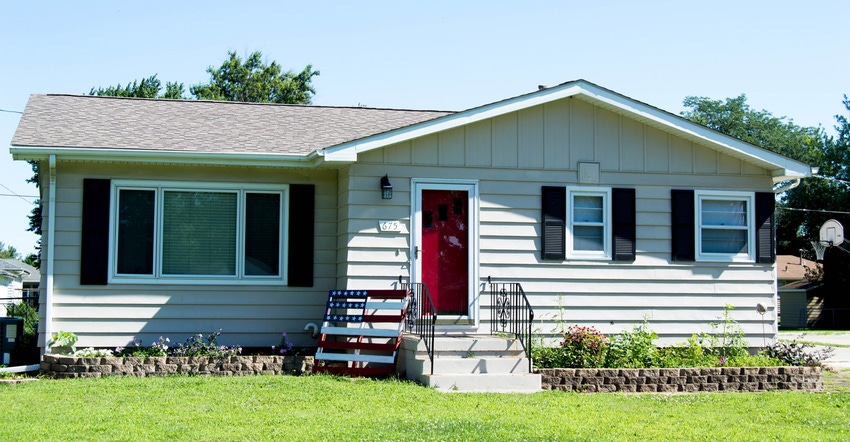May 15, 2019

Access to safe and affordable housing is a critical issue facing many rural community leaders, as they work hard to recruit and grow businesses and attract new residents to rural Iowa.
“If you have an employer in your community, you likely have a housing shortage,” says Steve Gilbert, co-founder of Rural Housing 360. “Housing is a common issue in many communities around Iowa, and it is experienced in a variety of ways. Our mission is to strengthen local communities by allowing hardworking folks the opportunity to live where they work, stabilize school enrollment, use existing city infrastructure, and to enhance the ability of employers to grow their respective businesses.”
Rural Housing 360 works through a collaborative effort to bring community leaders, developers, employers, state and federal agencies, housing trusts and other partners together to improve local housing stock.
Workshops in June
As part of this housing partnership, the Iowa League of Cities is organizing a series of six meetings in June focusing on the housing needs of each rural area and the types of housing programs available in rural Iowa. The meetings will be held in communities between 600 and 1,500 residents. More than half of Iowa’s nearly 1,000 communities have fewer than 500 residents.
All meetings are from 5:30 to 8 p.m. Cost to attend is $45. Dates and locations are:
June 4. Oakland Community Center, Oakland in Pottawattamie County
June 6. Allison Public Library, Allison in Butler County
June 11. Laurens Marathon Community School, Laurens in Pocahontas County
June 13. Shueyville Community Center, Shueyville in Johnson County
June 18. KD Center, Eldon in Wapello County
June 20. Grand Junction Community Center, Grand Junction in Greene County
Staff from USDA Rural Development will be at these meetings to answer questions about mortgage programs the agency offers. Each year USDA Rural Development assists more than 2,000 families.
Strengthening rural communities
June is Homeownership Month, a time to reflect on the important role homeownership plays in American society, especially rural America. Homeownership provides a strong foundation that helps people build household wealth, start a business, fund education through home equity and climb the ladder of economic opportunity.
“Owning a home is a central piece of the American Dream,” says Grant Menke, USDA Rural Development state director in Iowa. “Homeownership strengthens local communities, increases social and community involvement, and provides an opportunity to build a strong future.”
USDA Rural Development has two low-interest, no-down-payment loan programs to help eligible families living in rural communities purchase or construct a new home. Loans and some grants are also available to help families make needed repairs to their homes.
USDA offers home loan programs
Direct home loans through USDA Rural Development feature 33-year loan terms, and payment assistance is available.
Typical income limits for a household of four are $82,700 for the guaranteed loan program and $54,250 for the direct loan program. Income limits vary by county and household size, so applicants are encouraged to contact USDA Rural Development staff for limits in their specific area.
Earlier this year USDA Rural Development staff joined Rural Housing 360 and other housing partners at a meeting at Eaton Corp. in Belmond, a community with 2,376 residents in Wright County. The employee-engagement meeting was attended by more than 40 employees and focused on creative ways to address the immediate housing needs in the community.
“Rural Housing 360 brings opportunities to rural Iowa communities that have tight labor markets and empty lots readily available for new home construction,” Gilbert says. “It takes local leadership and a public-private partnership to effectively address housing and workforce concerns and the impact these issues are having across our state. We are providing a platform for rural communities to address both issues.”
Rural Housing 360 currently provides three modular-built home floor plans ranging from 1,000 square feet to 1,400 square feet of living space. Homebuyers can choose the size of the house, floor plans, colors, and other options and amenities.
“When rural America thrives, all America thrives,” Menke says. “USDA Rural Development programs are a catalyst for rural prosperity by providing access to affordable rural housing. A home is the foundation to ensure rural families, businesses and communities are able to prosper today, and in the future.”
To sign up for one of the 2019 Small City Workshops, visit iowaleague.org or call 515-244-7282. For more information about Rural Housing 360, visit ruralhousing360.com. To learn more about USDA Rural Development housing programs, visit rd.usda.gov/ia or call 515-284-4444.
Leach is a public information officer with USDA Rural Development in Iowa.
About the Author(s)
You May Also Like




